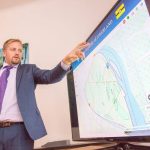One of the most unorthodox weekends of my life came to a close on April 17, 2016, after a thought-provoking conference to celebrate the first anniversary of the self-proclaimed state of Liberland, in a village in eastern Croatia.
My favourite writer is Evelyn Waugh, a literary genius who so beautifully captured life in the first half of the 20th century. An intrepid traveller and a soldier when called upon, Waugh had an appreciation of the absurd and the remote, and managed to turn them into brilliant and surreal tales from different corners of the globe.
How I wish he had been my room-mate this weekend, for here in the 21st century, there was an epic stage set for him. No imagination needed, just his keen eye, sharp observation and hilarious turn of phrase – with him at the scene, he could easily have this year’s bestseller. In his absence, it is left to me to contribute an inferior overview of one of the truly most remarkable events of the year, and if time permits, the title of my next book – A Weekend in Alice in LiberWonderLand.
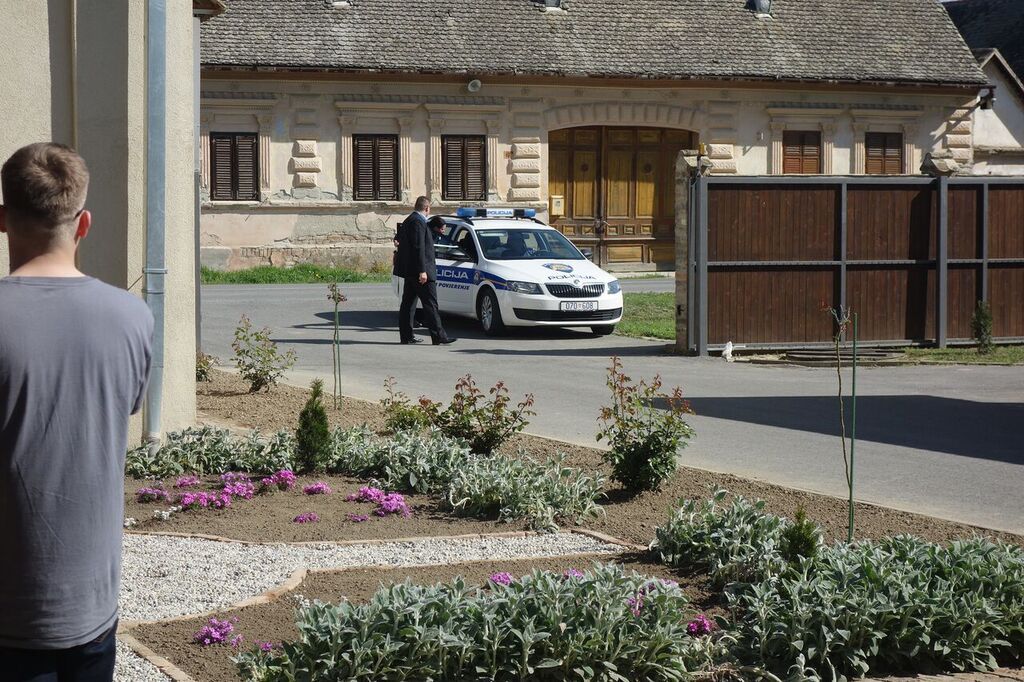
I am really not sure where to start. Perhaps at the beginning. A year ago, a Czech politician called Vit Jedlicka popped into a small piece of marshy land on the left bank of the Danube between Croatia and Serbia and claimed it as his own, pronouncing the Free State of Liberland. A 7km2 patch, complete with one ruined hunting lodge as the state premises, located on the international waterway of the Danube and otherwise connected to Croatia, Jedlicka claimed the land under ‘terra nullius’, whereby a piece of land becomes available to the first claimant if it has not been claimed by any state.
His new state made global headlines, and it was dismissed largely as a publicity stunt and not taken seriously. Those who considered his actions a little more closely were incredulous that, after such a bitter regional conflict just over 20 years ago, there could be any unclaimed land between Croatia and Serbia. The reason was simple. A temporary border was put in place, and a practical one – the centre of the Danube River, with Serbia taking the land to the right, Croatia to the left. This suited Serbia well, but Croatia was not happy, preferring to use the 19th century catastar map of the region, when the Danube flowed differently. Back then, there was more of today’s territory on the Serbian side of the river than the Croatia, and Croatia was holding out for that. As neither side claimed a 7km2 piece of land left of the river (Serbia because it was only interested in land right of the river, Croatia as they were holding out for a greater prize on the other side of the Danube), the land was unclaimed. Jedlicka saw his chance, nipped in and planted his flag. Since then…
Whatever your pre-conceived ideas of the Liberland project – a nutter from Prague, a hoax, a serious libertarian project – leave them behind until the end of this article, as I want to take you on the journey I went on this weekend, a journey of education, humour, shock, admiration, a little more shock, confusion, and ultimately a totally different picture of Liberland… and Croatia.
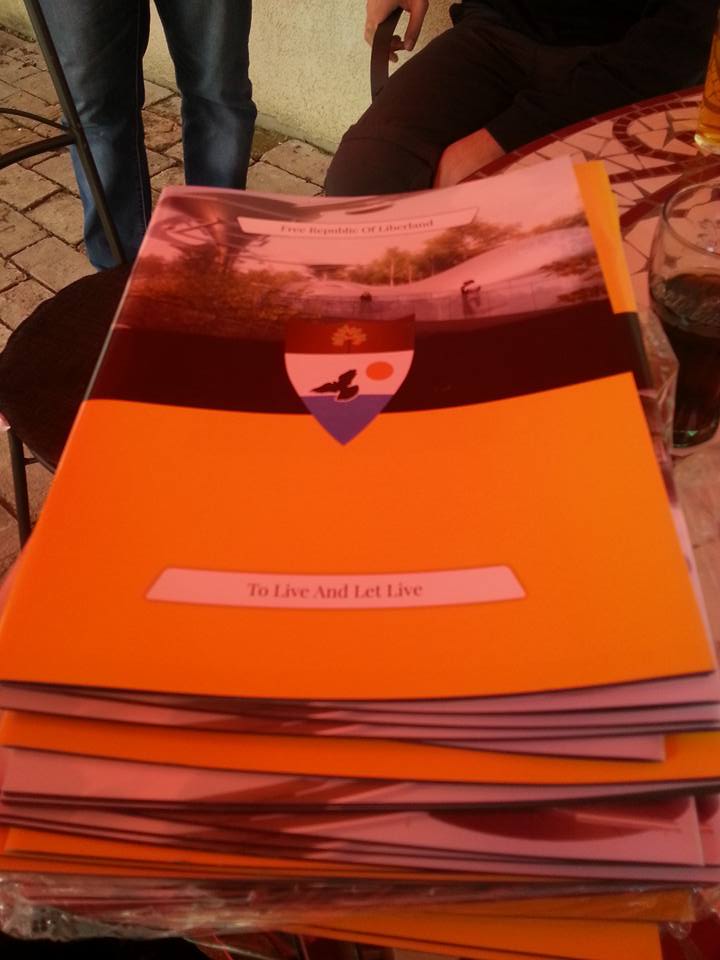
Why did I come? I was curious. I had never met President Jelicka, although fate prevented us for sharing a cold one at Munich Airport a couple of months ago, but I had been in contact via Facebook, even interviewed him for TCN. While I did not take him too seriously, I cheered him on from the sidelines, much as the world is cheering on Leicester City in the Premiership – the underdog daring to be different. When I heard that there would be a conference in a village north of Osijek in Slavonia to mark the first anniversary of Liberland, I just knew I had to go. Apart from the surreal location, who else would turn up? A TRULY eclectic collection of people from all over the world drawn to this unique project.
Including the Croatian police. For a project that was dismissed nationally as a joke, the police presence, both visible and (as we were about to find out) invisible, was the first major surprise. Three patrol boats on the Danube to prevent anyone entering territory not claimed by Croatia, and a frequent police presence, both by police car outside the hotel, and personal visits.
The president had kindly offered to collect me from Osijek Airport in his State limo (the mind boggled – a stretch limo or a Zastava?), but messaged his apologies, as he had been prevented by the Croatian border authorities from entering Croatia, despite being an EU citizen with a valid passport. The irony was stark – here was a country were 650,000 migrants and refugees had passed through the country, many without papers, and yet an EU citizen with valid papers was denied entry. I spoke to Vlatka Segecic from the Ministry of the Interior to ask her why, and I wrote an article on the whole incident. While Vlatka could not comment on individual cases, I soon had the reason for the President’s exclusion, as someone sent me the memo from the Ministry of the Interior to the border guards regarding the Liberland President. I think if I published it or divulged its contents, I might get in trouble, so let’s just say, I don’t expect President Jedlicka will be attending any State banquets in Zagreb any time soon.
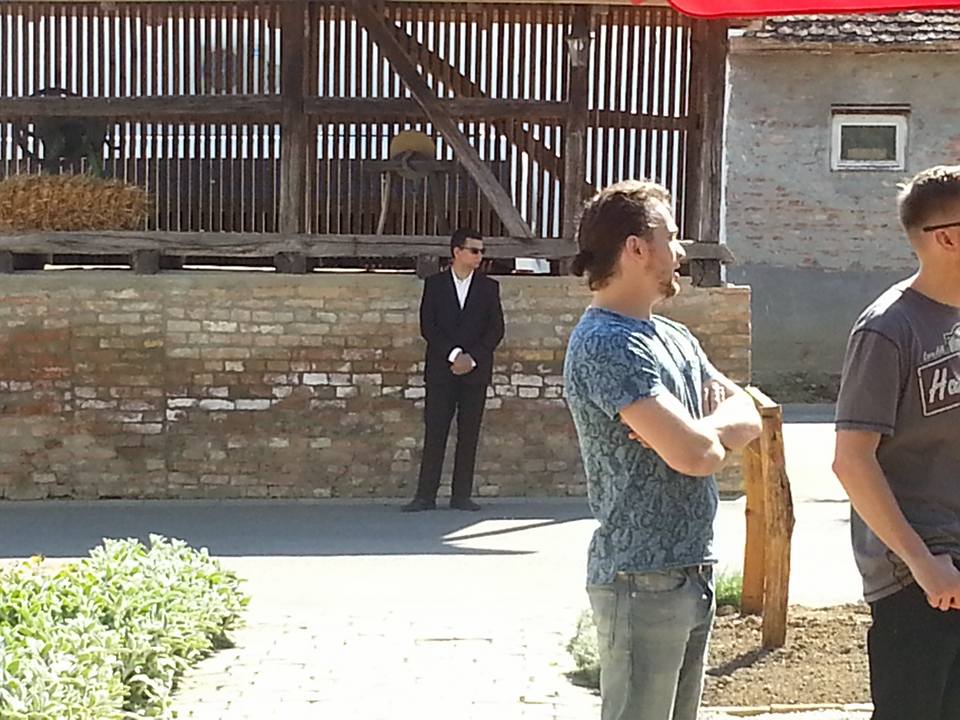
It turned out that the President was not the only one having issues. Others, including his documentary makers, were also banned from entering, while seemingly every other guest had his own tale of horror at the border to tell. First time visitors to Croatia (and one of the things that blew me away was the number of foreign visitors who were totally blown away by the beauty and hospitality of this forgotten part of Croatia – apart from the intrusive police presence, that is) were encouraged to admit they were going to the conference. And once the Liberland connection had been made (some naive visitors had their Liberland brochures – above – on display) was made, passports were taken, cars searched, and an hour of their lives wasted, with a hostile welcome to Croatia the result. Nothing like holding a conference in a democracy in a country reputed for its welcoming tourism.
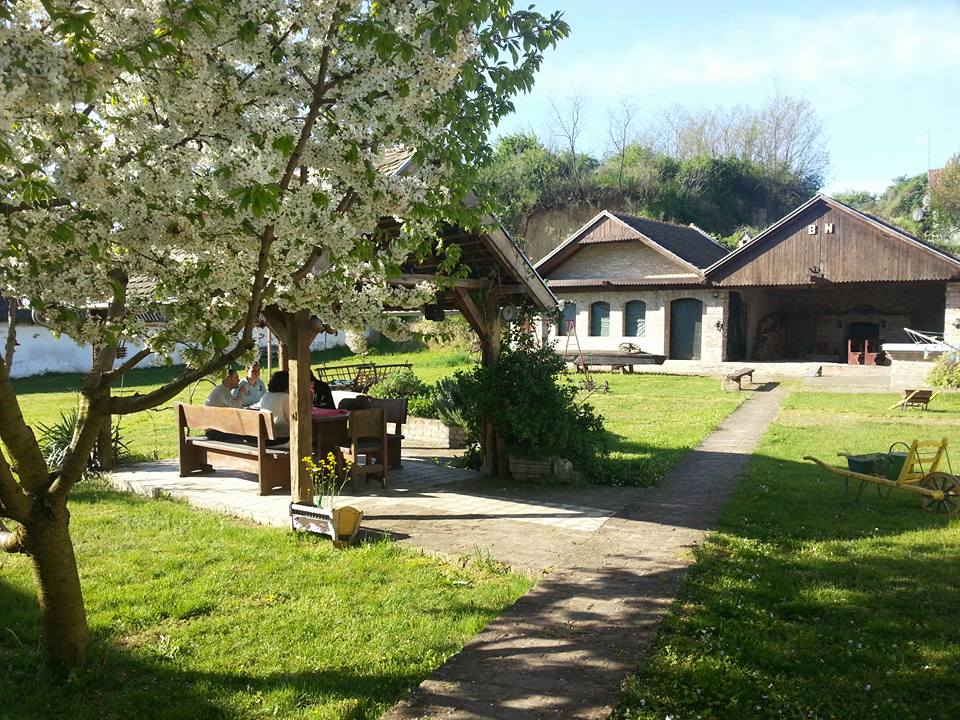
And it WAS beautiful. I know Slavonia only a little, but the people are renowned for their hard work and great hospitality. Here was the scene for morning breakfast before the transfer to the hotel in Lug for the conference. The hospitality, the tranquility and the serene nature were constant backdrops to the weekend of madness which was to ensue.
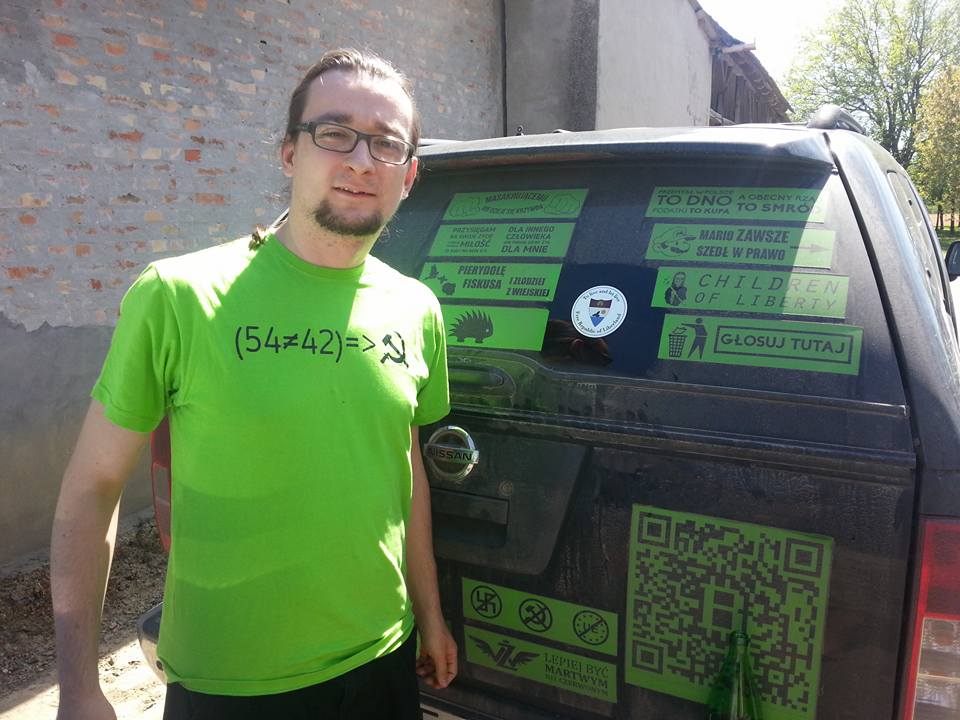
I was particularly keen to see who was going to show up, and as expected it was a fairly eclectic bunch, from the true libertarian, crypto-anarchists and philosophers, to the curious tourist, writers looking for material for their books, investment bankers and politicians. Some were a little more provocative towards authority than others, but they were overall a very tame but stimulating bunch, and my horizons were broadened in several directions. As for connections – priceless.
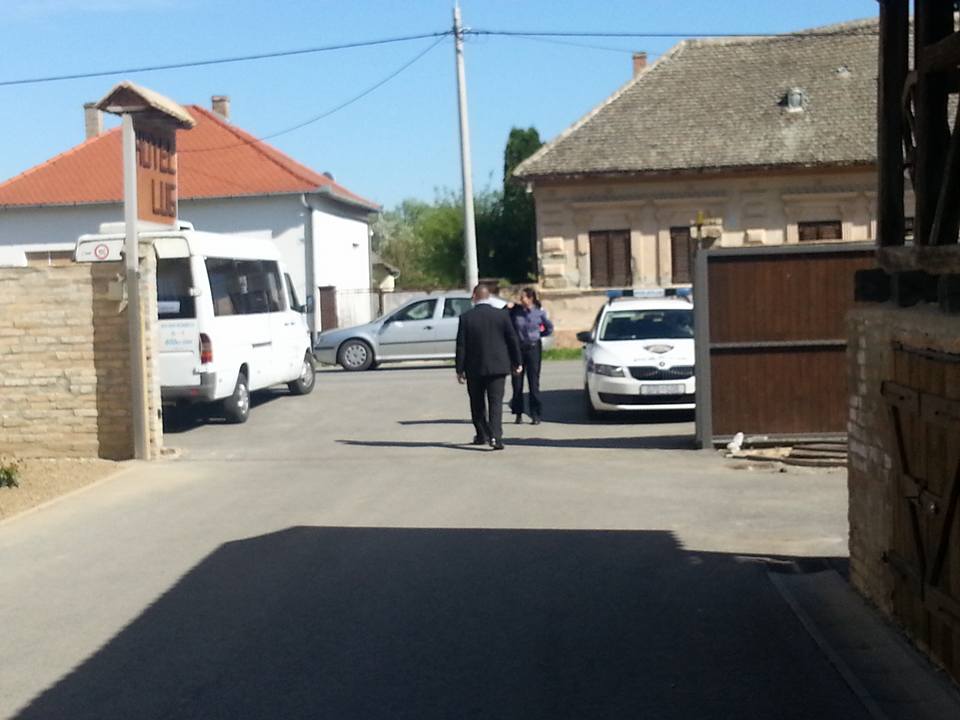
As the conference was set to open, there was security on both sides. Liberland had a couple of dudes in black suits and shades, the Croatian police were at the entrance. I am not sure what the danger was in this pretty but remote village close to the border with Serbia – perhaps an outbreak of libertarian thinking on an increasingly pressured society in Croatia.
I was glad the bar was open – although it was not yet 10am, it was time for a beer.
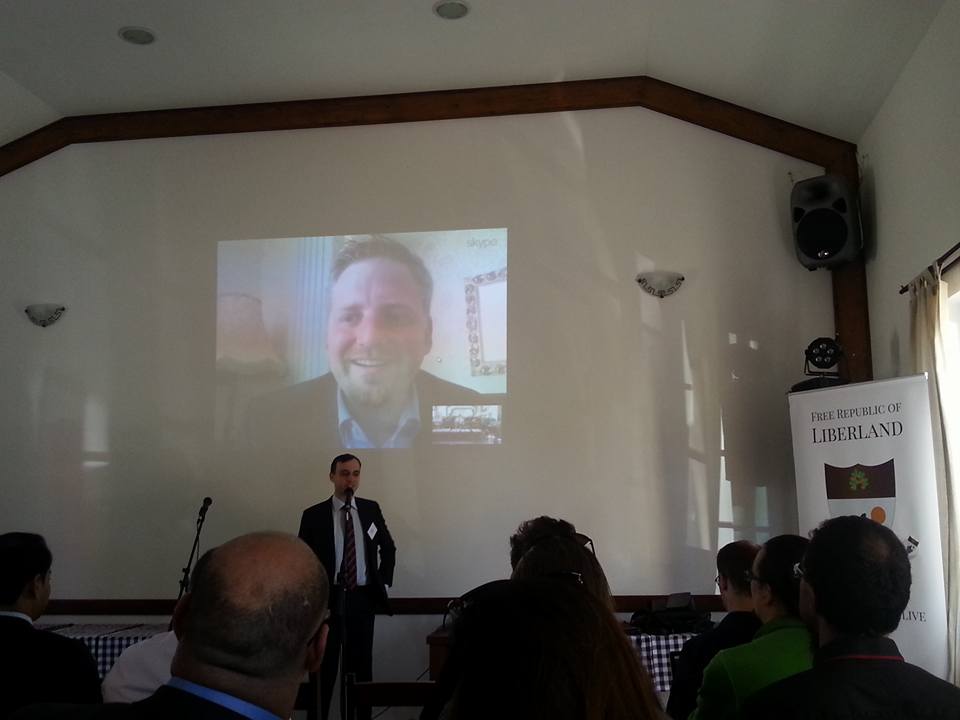
Of course, with the President in exile and banned from the conference he had organised, it was left to the wonders of technology. Not known for its high-speed Internet, the guests in the hotel in the village of Lug were asked to turn off their WiFi so they could better hear their president speak. Addressing the flock as the leader of a free nation yet to be recognised in the 21st century.
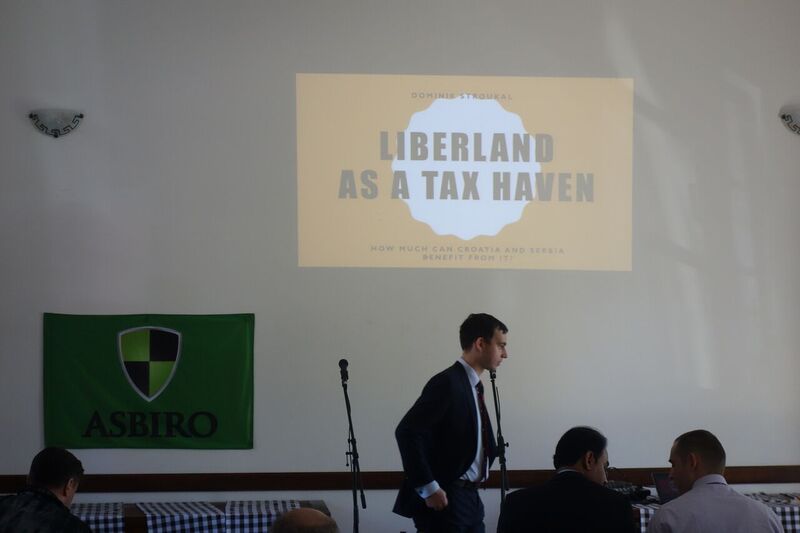
And this was when my vision of Liberland started to change. It was interesting to note that some of my fellow conference participants – one a successful author, the other a journalist for one of Britain’s top newspapers – concurred. They had done researach on lots of micro-nations and the like, but this was different – more organised, more coherent and – dare we say it – more likely to succeed.
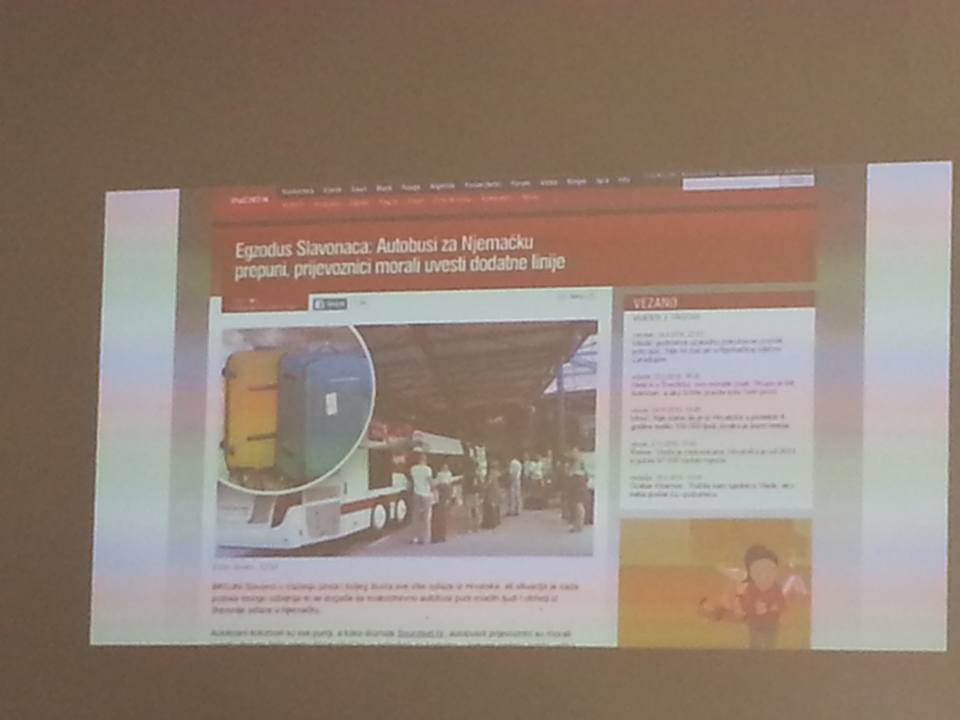
This article is long enough without me going through all the individual speakers, who came from America, Sweden, Ireland, Croatia and the Czech Republic. You can check them all out – as well as the conference schedule – here. One name in the list of speakers will suffice – Rick Falkvinge, who founded the Pirate Party in 2006, a political party focused on the issues of file sharing, copyright, and patents. One of the speakers at the Liberland conference, Rick’s party affiliate, the Pirate Party in Iceland, currently has more than 37% of the vote in the polls in Rejkavik – from dream to political power in just 10 years. If Rick can do it…
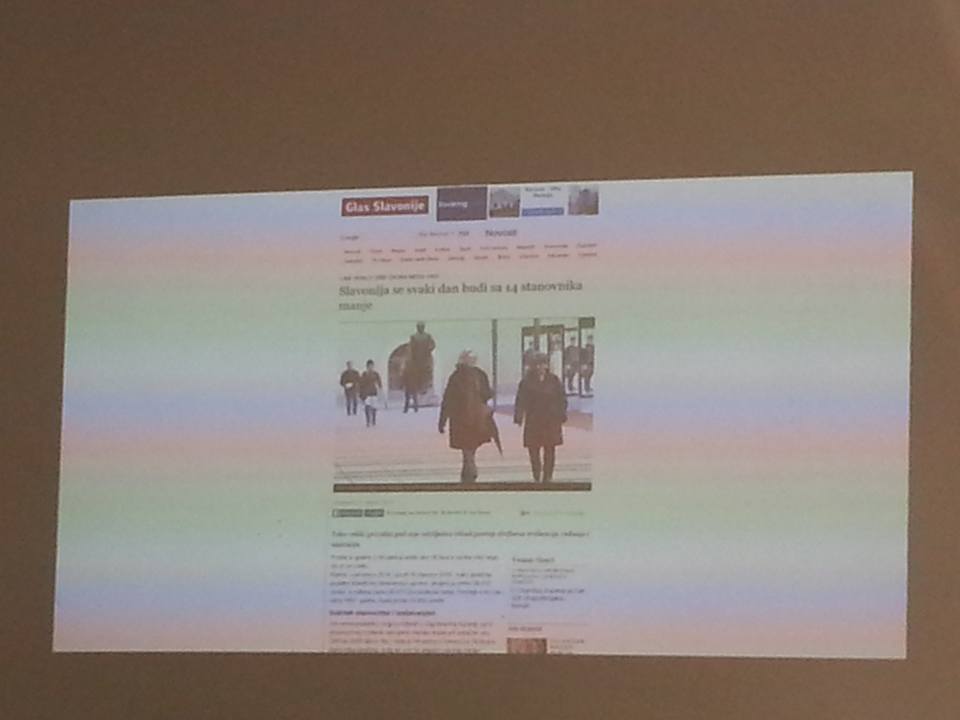
There were a few areas where my understanding of the situation differed from many of the participants at the conference. As a resident of Croatia for 13 years, I have perhaps a better understanding of the recent painful past, as well as an appreciation of how it looks that a foreigner comes in to claim some territory after a 4-year war which devastated the region, costing tens of thousands of lives. For many people I spoke to in Croatia, after the initial joke, it was offensive that a foreigner would come in and try and claim some land on a technicality after the recent past.
I certainly don’t blame my fellow conference participants for their lack of knowledge of the situation – how could they know? – or of their libertarian approach to things. We were here for Liberland after all, weren’t we? As a kind of local, I could see the police presence, the tension and the (perhaps too strong a word) harassment of local businesses who were dissuaded from having anthing to do with the Liberland project, despite it bringing good money to those businesses in the middle of April.
The tension of the local authorities clashed with the libertarian approach of the conference participants on a number of occasions, most of whom were on their first trip to the Balkans. As a Balkanised Westerner, I could understand both points of view when this American participant (and speaker) was thrown against a wall by border police, frisked before having his GoPro memory card stripped. Judge for yourself where your sympathies lie in this interview I did with him.
There were several incidents with the police, and while I would describe them as heavy-handed, there were perhaps understandable, given the directive from the Ministry of Interior I had seen, as mentioned above.
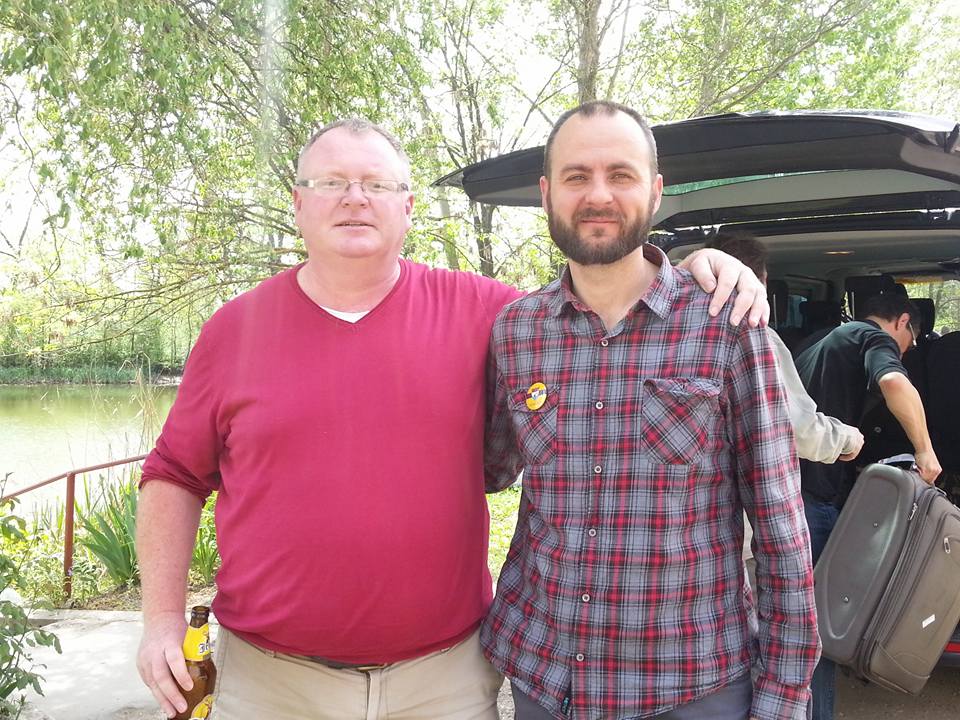
Despite some fascinating people from all over the world, the most remarkable character of the entire conference was this man, Damir Katusic, a Croatian local, who has been heavily involved in the Liberland project since just after it started, and without whom the conference would have flopped. Thank you Sir! I can only begin to imagine the hassle he went through to pull off the conference, but he brushed off any problems with a calm exterior which made a mockery of the chaos and tension all around him.
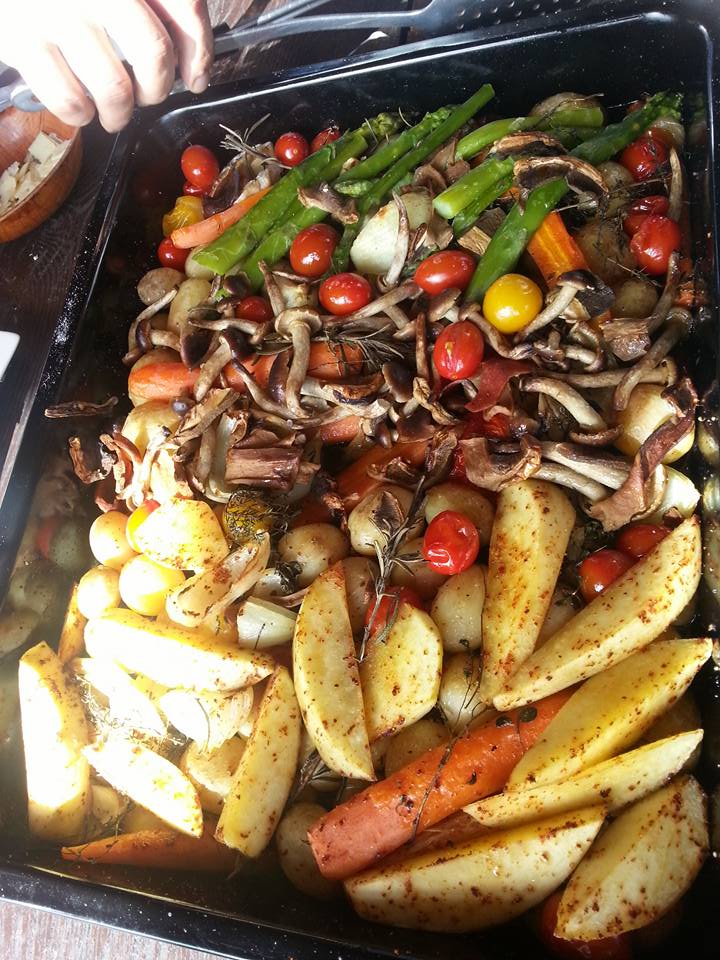
It was time for lunch, and I wanted to escape the engaging but surreal surroundings to get a little reality check. As luck would have it, my great friends (and Croatia’s best photographers) Mario Romulic and Drazen Stojcic lived a few minutes away, and they came to collect me for what will be one of the meals of the year. It was also a reinforcement of one of the lasting memories of the weekend – what a stunning, undiscovered natural paradise the region of Slavonia and Baranja is.
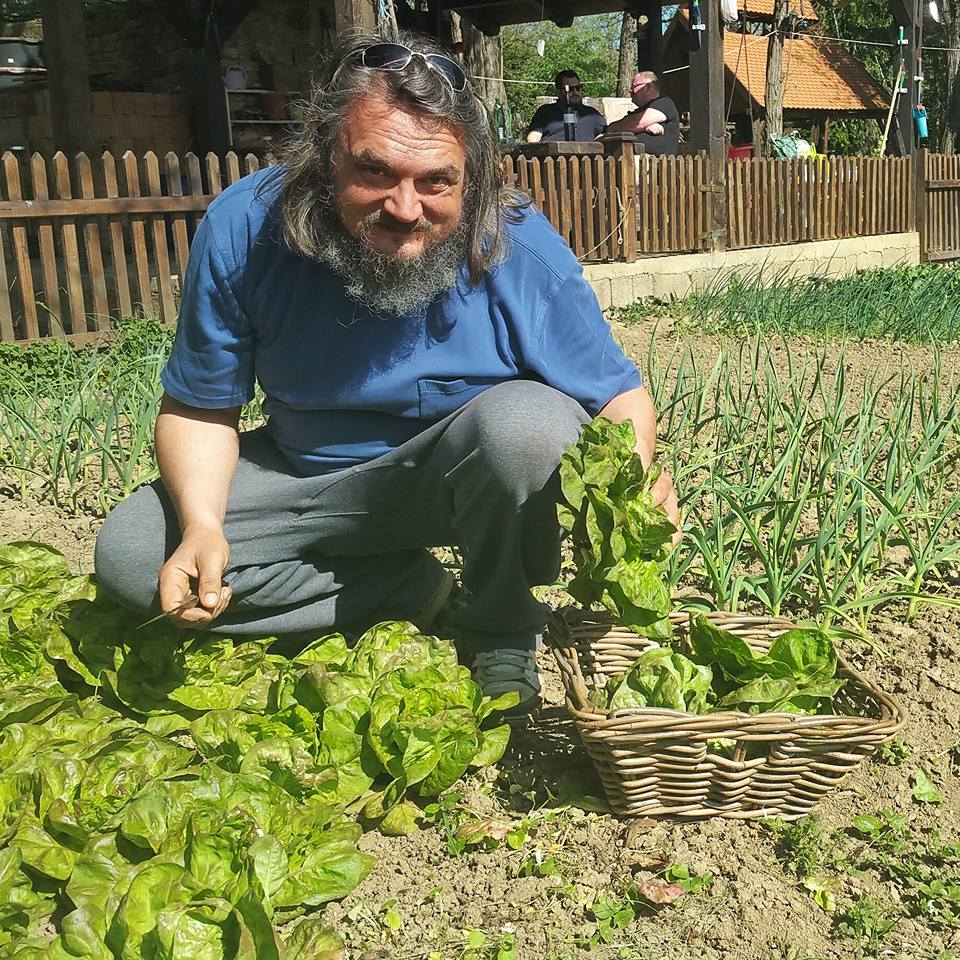
Don’t ever tell them, but Romulic and Stojcic are heroes of mine. Internationally acclaimed (their recent Hvar in the Storm timelapse had a million hits in 3 weeks and is the official video for Croatia’s Eurovision Song Contest this year). But for all the fame and money, they are Slavonian boys and faithful to their region. Natural living a la Romulic, with Mario cooking up a feast, the majority of which was sourced from his garden just a few feet from our table. Food as It Once Was.
Conversation naturally turned to the conference and the absurdity of the Croatian police reaction. But also to one of the sore topics of the reality of Slavonian life, and a key topic of the conference – emigration and the dying of the region. Indeed the two other guests at lunch, one an Osijek resident – were just about to emigrate to Madrid, the latest in what is becoming a mass exodus in one of Croatia’s most forgotten regions.
My photos are a little out of sync, but a little above you can some of the media slides from one of the presentations. Local media reported that there are 14 people less living in Slavonia each day (it is MUCH more, claimed my luncheon companions), there are now extra buses from the regional capital, Osijek, to Germany, to service the growing emigration and family connections contained therein. The region is dying, dying, dying. No prospects, no hope, no plan.
In the glitzy presentations in Hotel Lug, the boys from Liberland had a message of hope and prosperity, and it was one which made an awful lot of sense. Let’s put aside views on ownership and nationalism for a moment (hard in the Balkans, I know), and look at what is potentially on offer. A new country of perhaps 30,000 inhabitants built on marshy land where nobody goes, whose nearest aiport in Osijek is 40km away. A country which is connected to Croatia (and the region of Slavonia particularly), and which would be dependent almost 100% on sourcing everything from Croatia – construction materials and workers, supplies, entertainment, food, transport – the list goes on. Not only that, but this new nation proposes to be a dynamic tax haven attracting untold wealth, with a trickle down effect to the neighbouring regions. According to one smart economist’s presentation at the conference, in 50 years, the trickle down effect should be in the region of an extra $6,000 – $13,000. Per person. Per year.
Fanciful? Perhaps, I am not an economist. The alternative? Who will be left in Slavonia in 50 years?
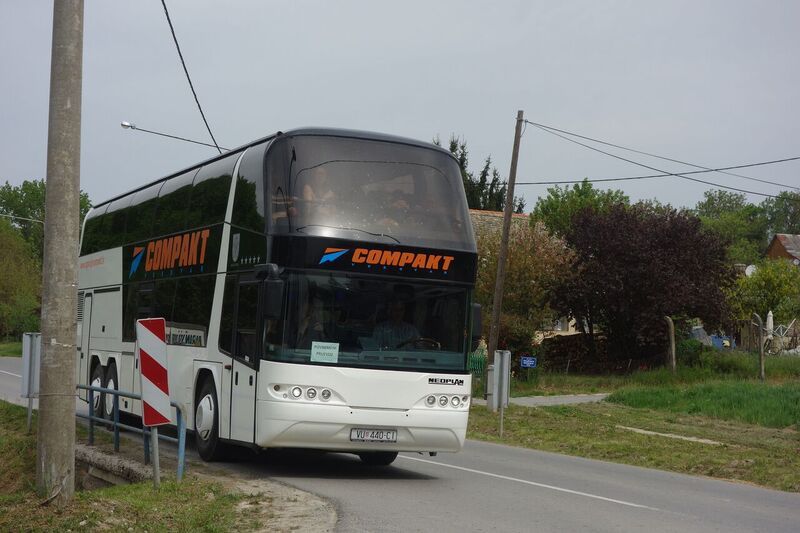
The surreal nature of the weekend reached epic proportions on Sunday morning, when a double decker bus rocked up to take us to the border, so that we could meet our exiled President and take a boat trip in Liberlandian waters, looking at the promised land (with a view of Croatian police patrol boats). With all the tension of the past couple of days (and I had already spent more than two hours taking an American film crew over to the Serbian side to interview residents of a forgotten Croatian village), I felt like I was in a Monty Python movie, even more so when one of the conference speakers, who had an unhealthy interest in surveillance equipment, informed us that his surveillance-tracking app had recorded high levels of surveillance both at the conference and on the bus route to the border. If you wanted to go incognito through a tense border, what better way than to go dressed as a double decker bus?
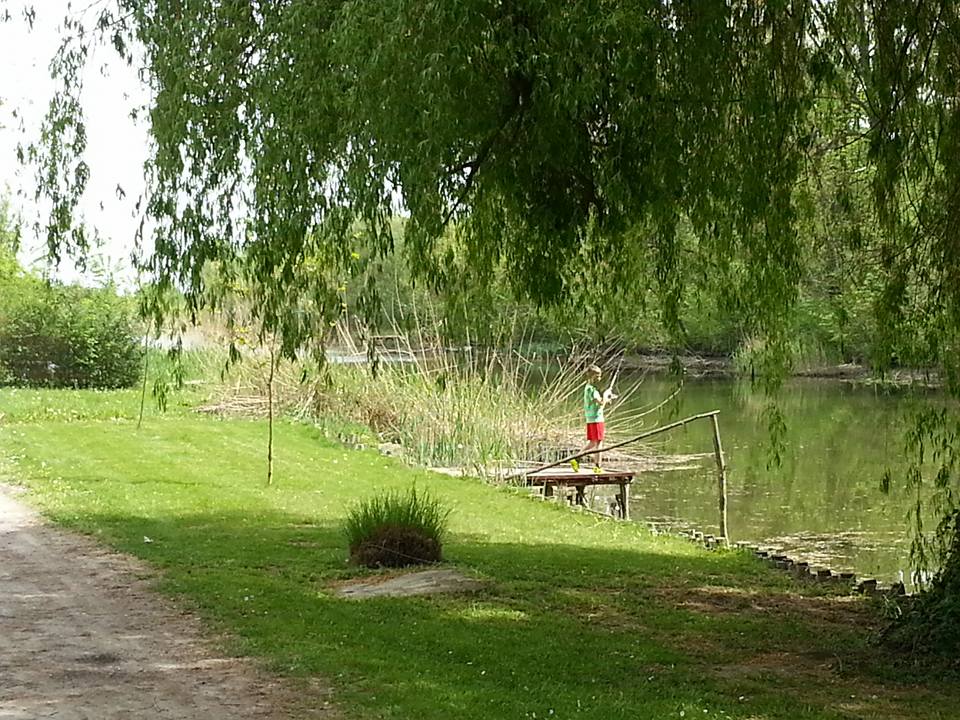
The Croats were understandably obstructive, but the Serbs too gave us some problems. While they had no objection to the concept of Liberland or Liberlanders, all this interest and increased number of visitors was seriously affecting their siesta time, and they too objected a little to the libertarian approach of some crossing the borders.
“Where are you going?” barked the Serbian border guard on the top deck of the bus. I am by now a little versed in crossing Balkan borders – be polite, indulge the national pride.
“We are going for lunch, as we heard Serbian cuisine is the best in the region, and there is a restaurant close by.”
He looked at me intently for a moment, then broke out into a smile.
“Yes, and it has a new chef. His name is Vit Jedlicka from Liberland.” The ice was broken and we were on our way.
Such a tranquil region if you could remove the politics…
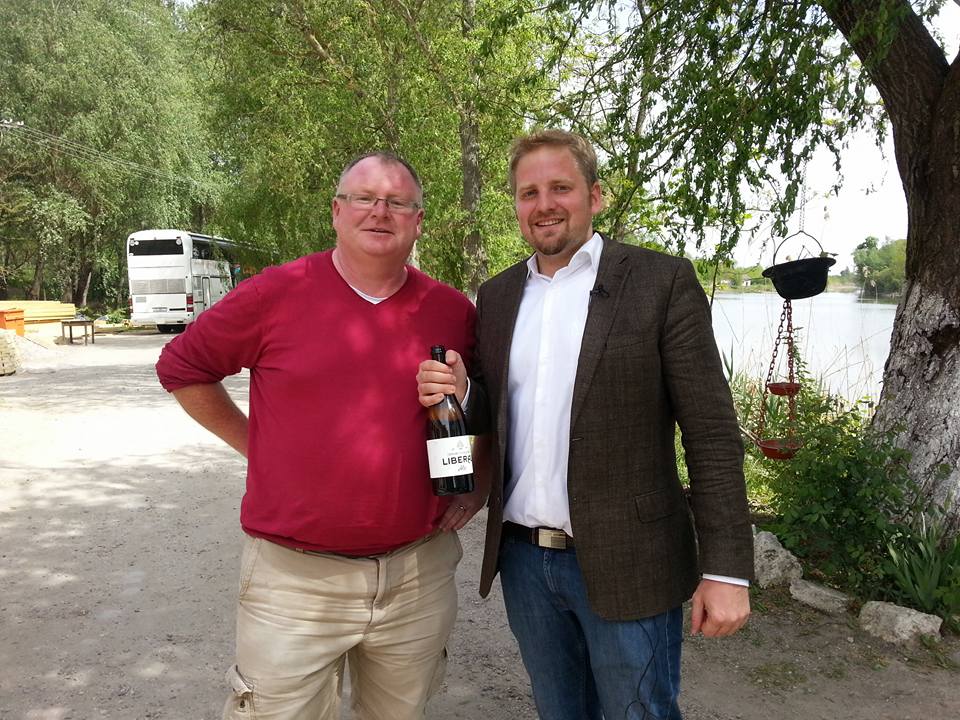
It was time to meet the President. After months of messaging, the presidential motorcade rocked up at some remote restaurant on the Serbian side of the Danube, and President Vit Jedlicka emerged, clutching his latest national pride, a bottle of Liberland’s national beer, Liberal Ale. Now served in Prague, Liberal Ale is an example of the voluntary taxation proposed by Liberland – 5% of revenue goes to the state for all sales.
There was sadly only enough time for a selfie and a quick chat with the President, before I had to head back across the border with Liberland’s Ambassador to Pakistan and assistant (yes, I laughed when I heard the title but after an afternoon with the esteemed gentleman, I am laughing no longer – Liberland takes its diplomatic corps very seriously, and their 75 global ambassadors are influential in their own communities – the Pakistan Ambassador was President of the Pakistan Red Crescent and had been proposed for an MBE for example, and was about to embark on a 3-month diplomatic offensive and fund-raising tour of Pakistan, with some VERY interesting appointments. This was a serious business).
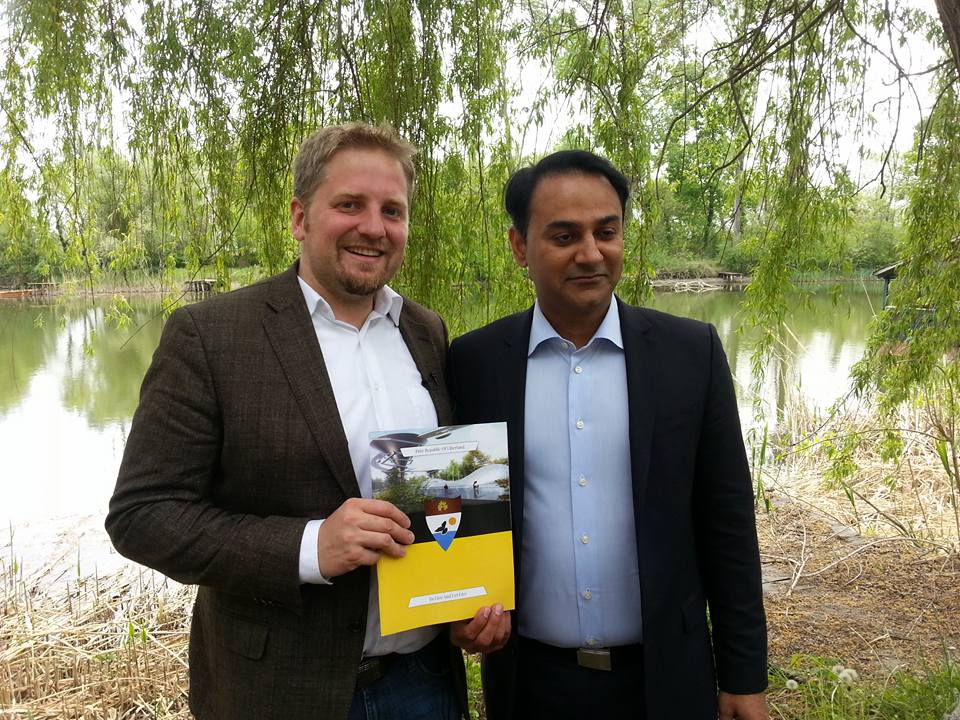
We had to leave as we had a flight to catch. Air Liberland’s 4-seater charter from Osijek to Prague would leave at 1630, and the Osijek Airport authorities agreed to open the airport just for the three of us that Sunday afternoon, but only if we were there by 1600. And with the friendly border authorities to contend with, the sooner we left the better. After another hour sitting at the border as punishment for our Liberland connection, we were free to proceed.
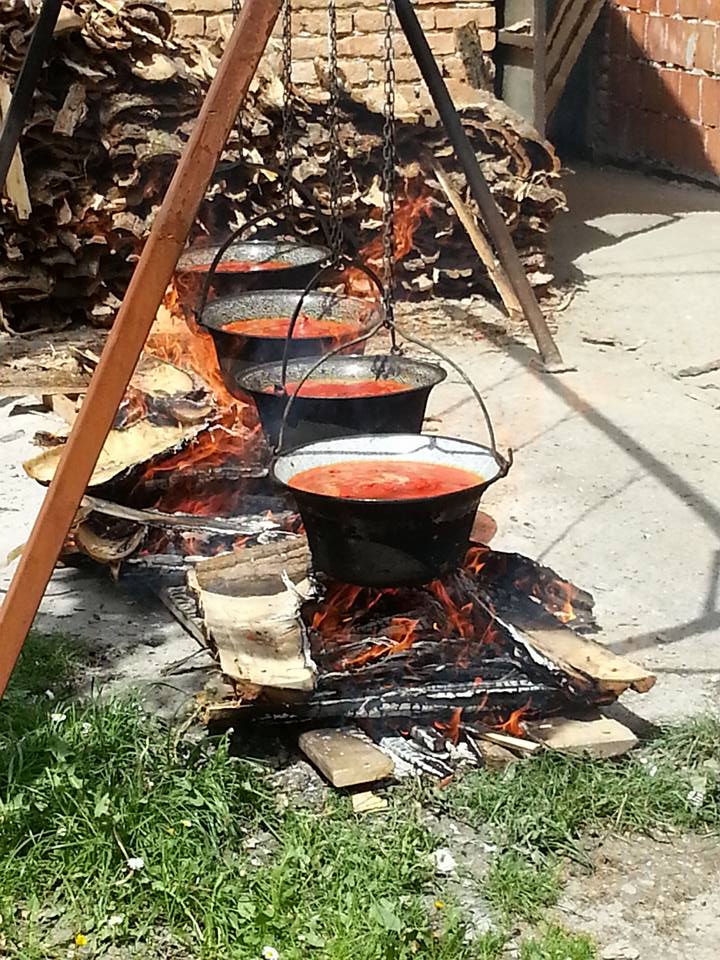
We missed a good lunch…
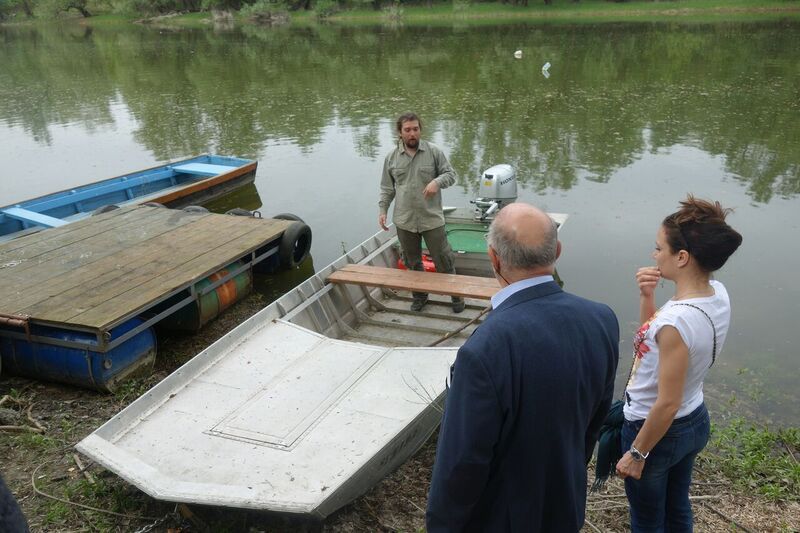
And the famous boat ride in free Liberlandian waters, despite the attention of the Croatian authorities.
Due to time and logistical constraints, the proposed boat trip was not quite as grand as had been planned.
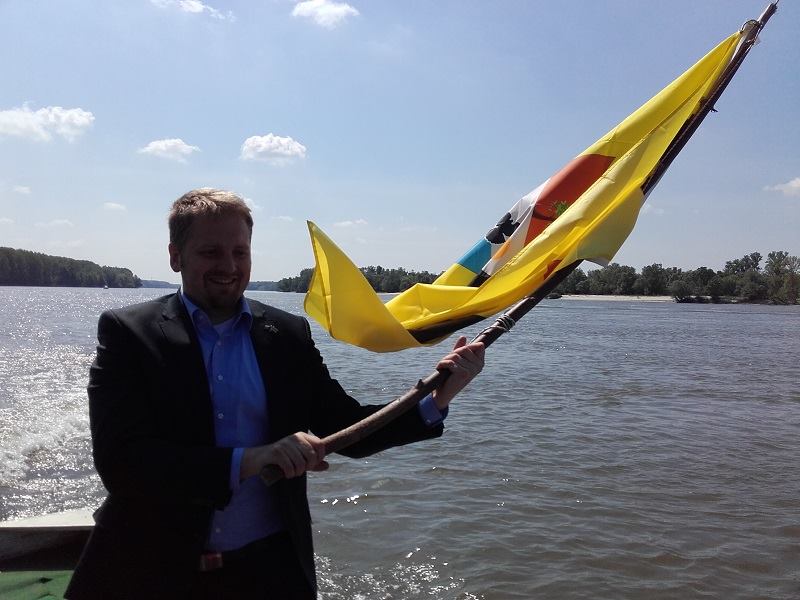
But freedom was in the air…
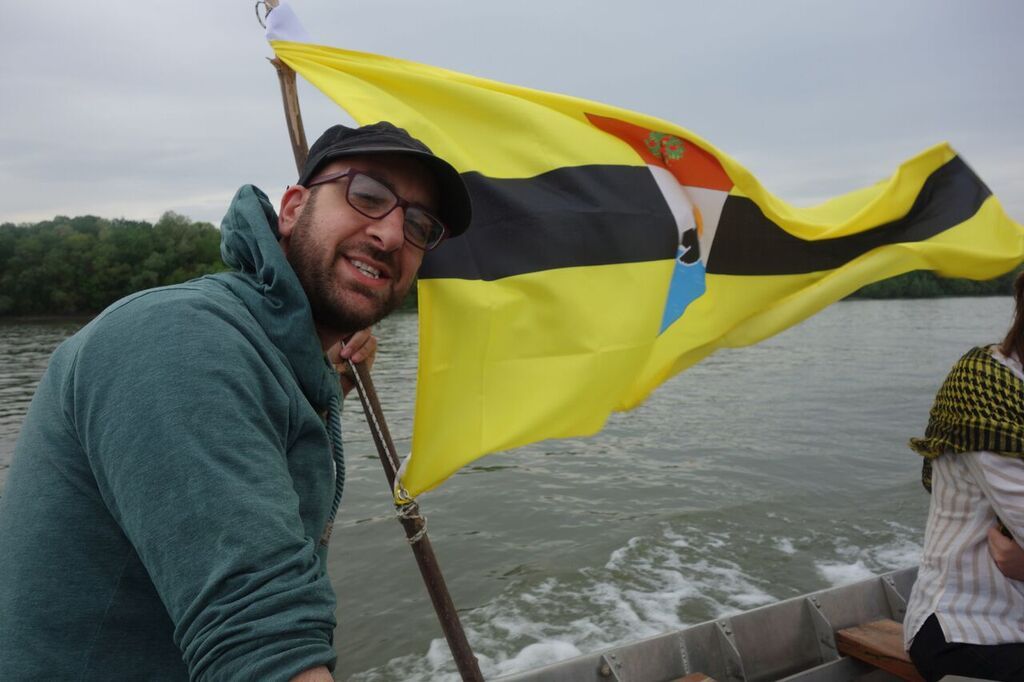
And conference participants took pride of place in front of the camera – free Liberland in the background.
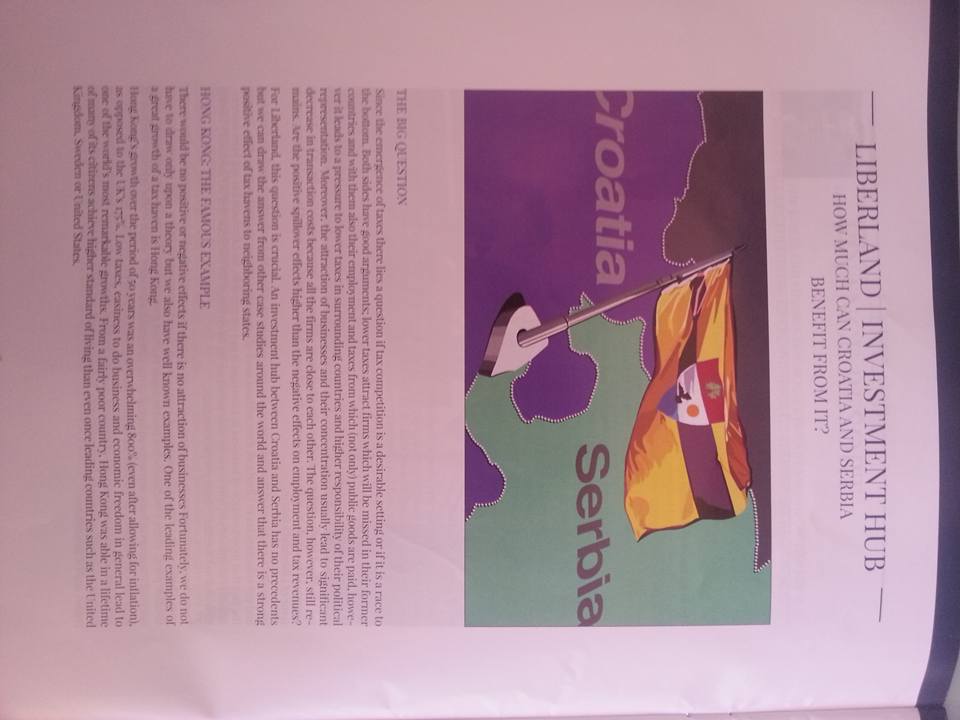
(Apologies for the side on photos – technical deficiencies of this correspondent)
It had been an inspiring weekend, and the Croatian border police ensured that there was plenty of time for reflection. Discussions with the Pakistani Ambassador were fascinating, and I got a better sense of the seriousness of the project, the potential power and enterprise that Liberland could bring to itself and its neighbours. The libertarian goodwill and connections were impressive indeed, and I understood a little better that while many dismissed Jedlicka as a joke, our friends at the CIA had rated the chances of Liberland coming into recognised existence as ‘higher than zero.’
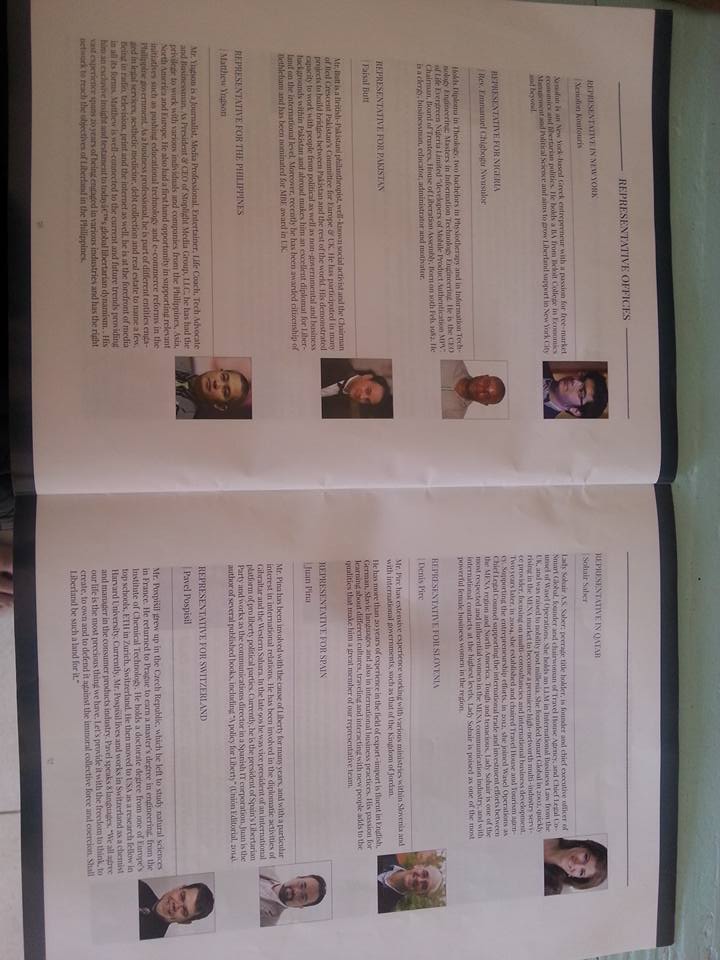
The very impressive brochure gave biographies of the main players in the Liberland administration, and I understood from the Pakistani Ambassador just who committed and hard-working the movement is all over the world.
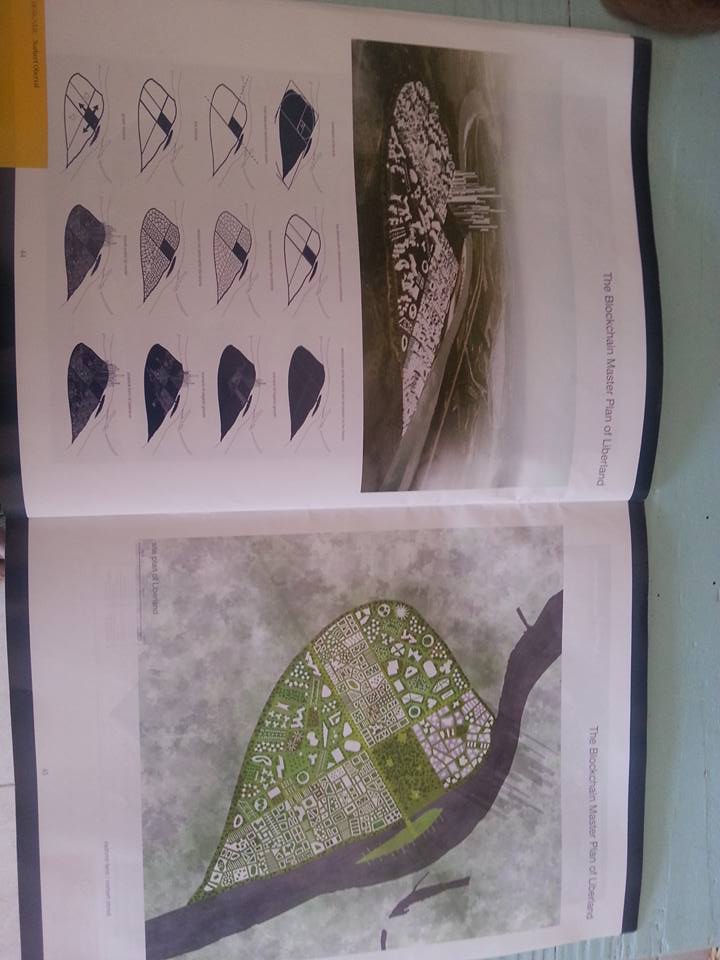
One of the things that people laugh about when the idea of building a city on Liberland is the terrain. A swampy terrain. Laughter probably as was the case with Hong Kong, but for different reasons. One of the highlights of the weekend was to decide the design of the future country, and an international architectural design competition, taking into consideration the terrain, was launched, with some truly innovative creations.
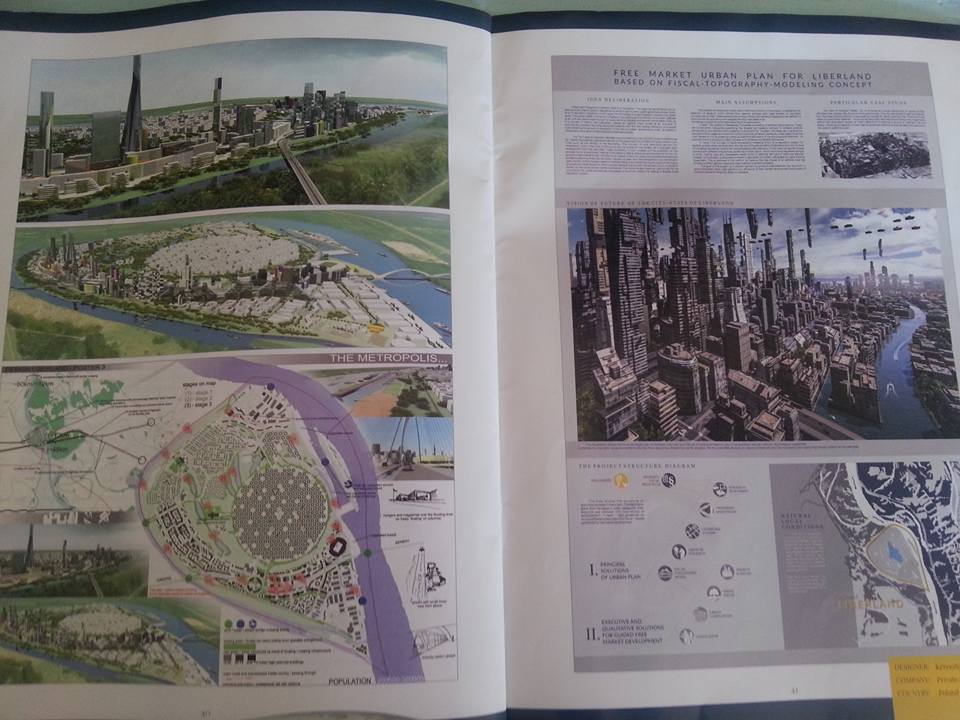
It was a truly inspiring – albeit bizarre weekend – and I came away with new friends, new ideas and a totally different understanding of not only the Liberland project, but of the harsh realities of life in Slavonia.
To me, Liberland is two things, which have been pushed together into one concept. The first is Liberland, the brand, which has captured global attention and inspired more than 400,000 applications for citizenship from all corners of the globe. With the impressive array of libertarian intellect and inspiration on show at the conference, it is fair to say that Liberland the Brand is well established, and Liberland has the players to strengthen and expand that brand. I don’t think there are many who object to the CONCEPT of Liberland.
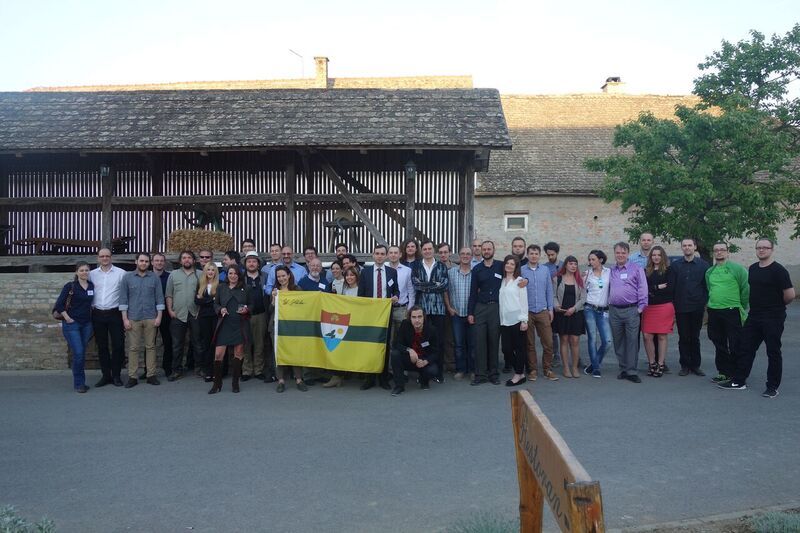
Which leaves the second part of Liberland – the physical location. President Jedlicka, who is a very engaging man, is quietly persistant, and he is convinced that the Liberland he has claimed is that Liberland that shall be.
“Why not?” asked one local. “I can see how it would bring us jobs and prosperity. It is just a piece of useless marshland. They are pretending someone is stealing their crown jewels.”
With its recent past and with national feelings to deal with, I can understand Croatia’s resistance to the concept of Liberland, but then when I think of how Slavonia will look in 10, 20 or even 50 years, I wonder if an enlightened and emboldened politician could strike a partnership with Liberland to appease the hardliners and help bring prosperity to this wonderful region whose life is ebbing away before our very eyes.
And if that is too much to ask…
Could Liberland exist somewhere else? I am not an expert in sovereignty law, but with the global economic crisis being what it is, is there a country with a depressed region out there somewhere which could enter a partnership with Liberland? Liberland the Brand is very strong, and I have no doubt it could be an economic tiger, and with the right partnership with its neighbours, it could regenerate an entire region.
Just ideas, I am not an expert, but one thing is for sure. President Jedlicka and his increasing band of influential supporters have a steely determination, and I have no doubt that Liberland will exist in some shape or form in the not-too-distant future. Exactly how is not for me to say.
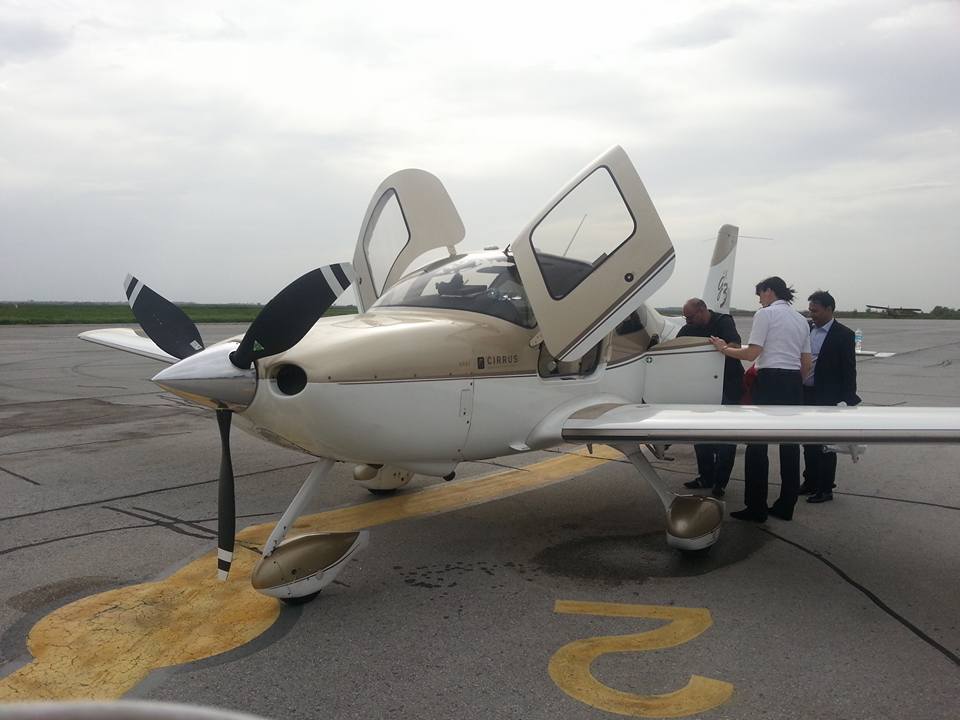
And what better way to end the perfect Evelyn Waugh weekend than a flight on the pride of Air Liberland – front seat next to the pilot on a 4-seater from Osijek to Prague through the clouds. But that is a different story…


